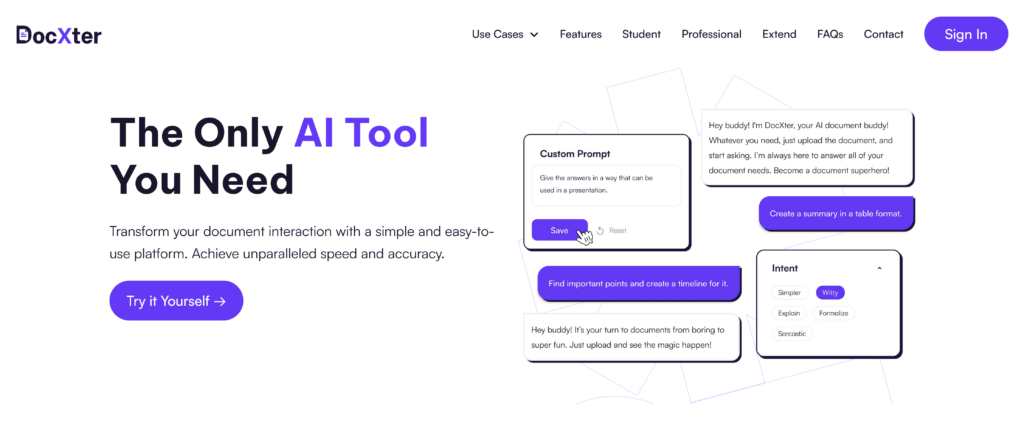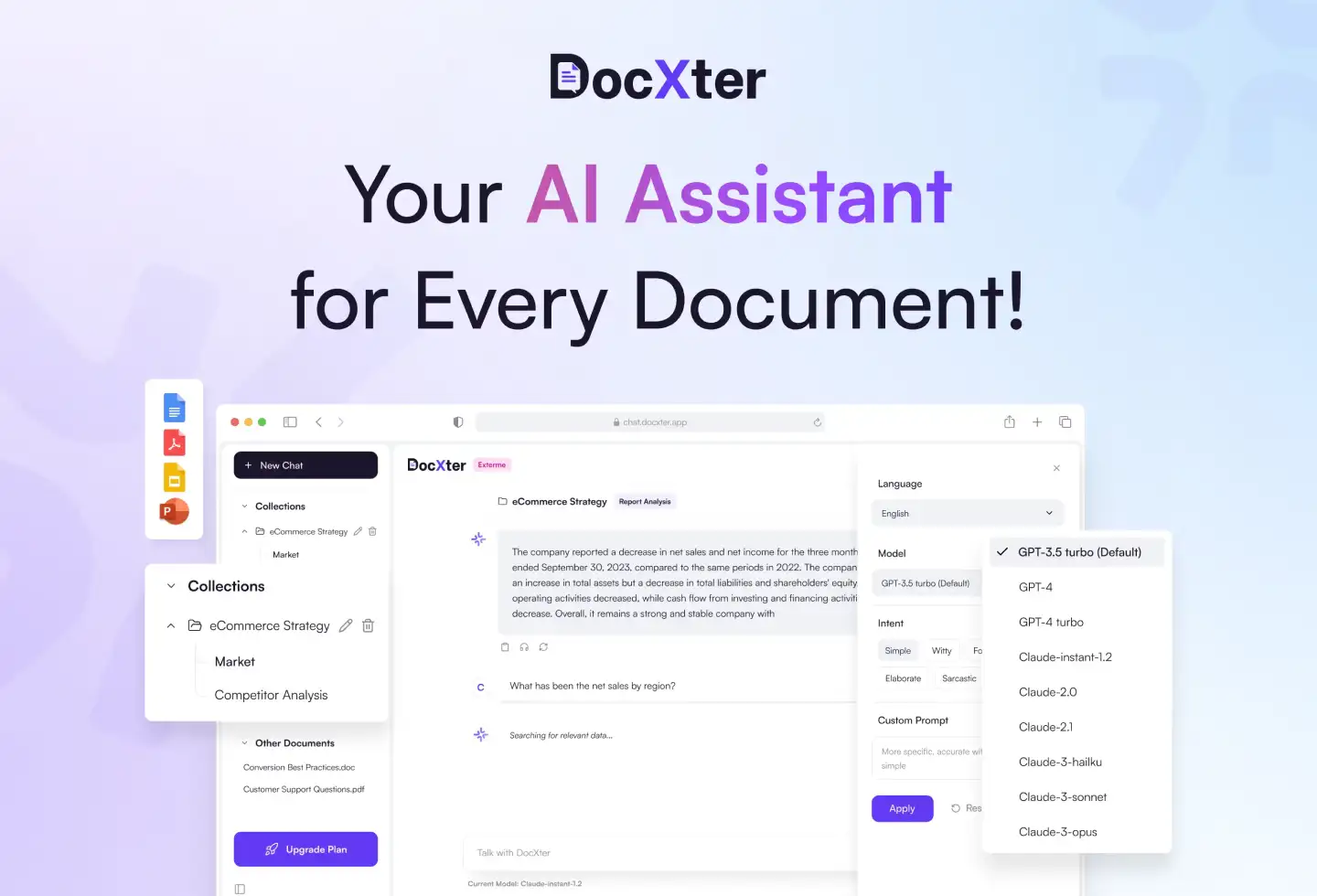DocXter is leading the future of document intelligence platform, enabling users to extract unmatched value from documents through intuitive conversational AI.
Today, it’s a leading AI document assistant app with over 10k users, transforming how people interact with documents and go on with their daily lives and work with AI powers.
Committed to continuous innovation, DocXter pushes the boundaries of what’s possible with ai document analysis and natural language processing.
WPSteroids helped DocXter transform its infrastructure to boost developer velocity, reliability, scale, and optimize costs.

The Challenges with the Document Intelligence Platform
DocXter’s aging infrastructure led to 2-3 days of downtime each month. Long CI/CD pipelines also dragged down release cycles stifling feature innovation.
Rising infrastructure costs were also a pressing concern, with expenditures increasing over 20% quarter-over-quarter. Their expensive data center footprint drained budgetary resources.
It became evident that migrating to a cloud-based architecture was critical to unlocking DocXter’s AI document analysis’s potential for the next stage of its evolution. On-premises servers were only going to continue dragging them down.
Our Approach to Document Intelligence
To help DocXter achieve its goals, we implemented a cloud-native, decoupled architecture using React, Node.js, GraphQL, and MongoDB.
This headless approach allowed the front and backend to evolve independently, enabling DocXter’s developers to build UI components without bottlenecks and update business logic seamlessly.
We leveraged Kubernetes and infrastructure-as-code to deploy cluster resources on demand. Automated deployments through GitHub Actions established a continuous delivery pipeline for reliable, zero-downtime releases.
MongoDB handled data replication and failover, providing resilience. DocXter could ensure availability even during regional outages.
By containerizing their application, we empowered DocXter to scale seamlessly while isolating services. Debugging and monitoring became straightforward.
Transitioning to Platform-as-a-Service removed infrastructure maintenance burdens. DocXter could instead invest more in its AI stack and research.
This cloud-based, decoupled approach allowed DocXter’s document intelligence to concentrate fully on advancing its conversational AI capabilities rather than wrestling with infrastructure woes.
The Results
Production incidents reduced by 30% since migrating, while page loads improved by 400%. DocXter saved over $120,000 in annual hosting costs by eliminating its expensive on-prem data centers. Cloud resources could be provisioned on-demand, driving efficiency.
Most vitally, headless principles established an agile foundation to experiment with bleeding edge capabilities like real-time translation leveraging GPT and Claude. With Kubernetes autoscaling, DocXter effortlessly handled usage spikes. Processing time for document uploads improved 4x for thousands of concurrent users.
DocXter also unlocked advanced insights into user behavior patterns and application performance through cloud analytics. This informed strategic product decisions.
The Impact of AI Document Assitant
Since adopting the new decoupled architecture, DocXter has exceeded benchmarks across critical performance, agility, and efficiency KPIs.
Platform uptime has improved from an unstable 95% to an industry-leading 99.99%, even as traffic has surged.
Release velocity accelerated from multiple weeks per deployment to multiple daily deployments. DocXter ships new features faster than ever. The platform has Achieved a staggering 70% reduction in Page load speed. API latency dropped by 60%. The user experience is snappier.
Infrastructure costs decreased by over 30% as DocXter optimized its cloud footprint. More resources can be allocated to enhancing their product.
With a containerized, horizontally scalable stack, DocXter easily handles demand spikes. Usage has grown 5x with no service disruptions. DocXter’s developers can focus purely on their conversational AI capabilities by removing infrastructure burdens through Kubernetes and serverless technology.
The decoupled architecture ensured the frontend and backend could evolve independently. Both client-side and server-side innovation have thrived.
Most importantly, the agile foundation has enabled DocXter to quickly tap cutting-edge advances in NLP, machine learning, and speech recognition to drive differentiated user value.
Key Results
- Achieved a 70% reduction in page load speed
- API latency reduced to 60%
- 30% decrease in infrastructure costs
- 99.99% platform uptime
What’s Next for Document Intelligence
The flexibility of headless unlocks immense possibilities to incorporate emerging technologies like blockchain, VR, and quantum computing.
As DocXter aims to be the AI assistant of the future across devices, our modular implementation ensures they can tap innovations in conversational UI, predictive analytics, and machine learning without infrastructure limitations.
The continuous delivery environment enables DocXter and its AI document analysis to conceptualize and launch paradigm-shifting product ideas at unmatched velocity. They are positioned to continuously delight users through expanding capabilities while upholding platform stability and developer speed.



